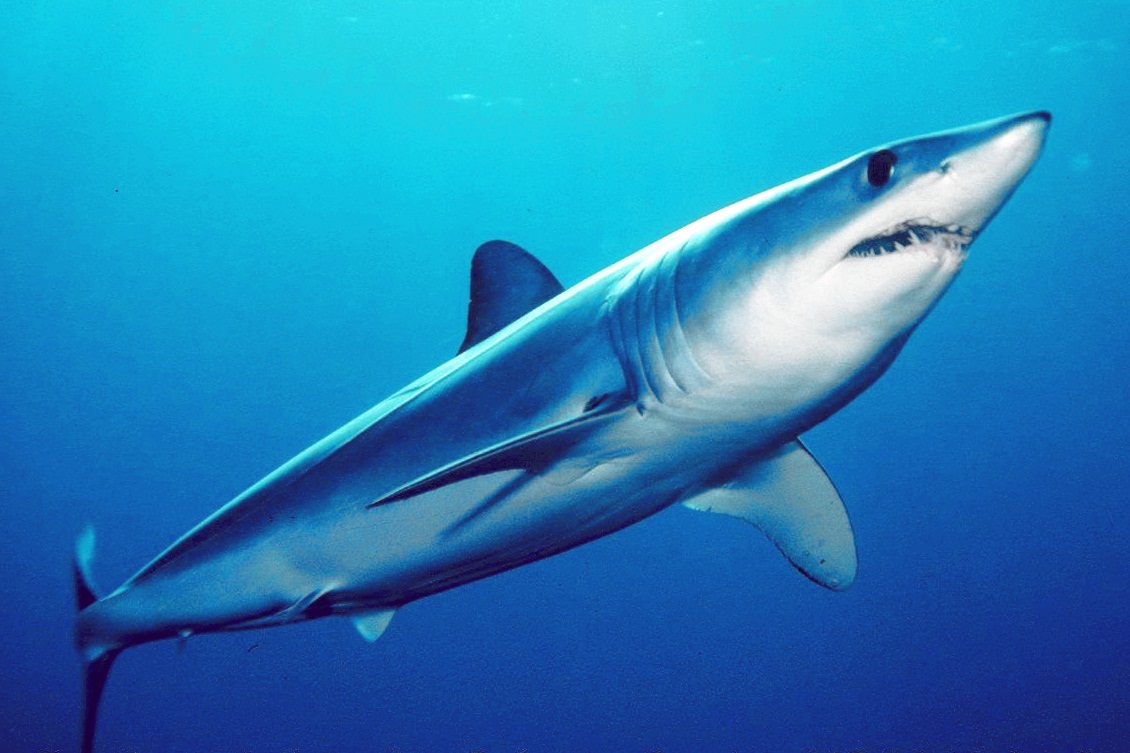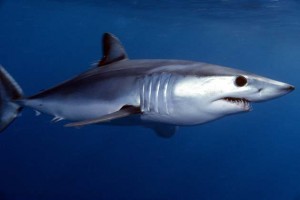The department of Fisheries and Oceans of Canada has announced a groundbreaking action to end overfishing of endangered shortfin mako sharks in Atlantic fisheries.
“In fisheries that have interactions with North Atlantic Shortfin mako, the Department will to prohibit any retention (dead or alive) going forward. This will be reflected in license conditions for large pelagic fisheries beginning in the 2020/2021 season”, writes president David Whorley of the Department in an official statement.
The first Atlantic country
Conservationists are welcoming this science-based decision by the Canadian government to end all retention of shortfin mako sharks. According to the Shark League, with this action, Canada becomes the first North Atlantic country to heed a longstanding recommendation from International Commission for the Conservation of Atlantic Tunas (ICCAT) scientists to prohibit retention of shortfin makos from the region.
Such action is urgently needed across the North Atlantic to end overfishing and rebuild the seriously depleted population, according to the conservation organization. Canada recently ranked fifth among ICCAT Parties for North Atlantic shortfin mako landings. “We applaud the Canadian government for stepping up to protect one of the Atlantic’s most threatened sharks, the shortfin mako,” said Shannon Arnold, Marine Program Coordinator for Ecology Action Centre. “Yesterday’s action represents a milestone in Canada’s remarkable emergence as a leader in global shark conservation, and one of the most significant steps to date in an urgent effort to save this exceptionally imperiled mako population.”
Shortfin makos
Shortfin makos are particularly valuable sharks, sought for meat, fins, and sport. Slow growth makes them exceptionally susceptible to overfishing. Makos are fished by many nations around the globe yet not subject to international fishing quotas. ICCAT scientists have reported serious North Atlantic shortfin mako declines and have recommended a ban on retention, in addition to other measures, since 2017. They estimate that rebuilding will likely take ~50 years, even if mako fishing stops.
At the November 2019 ICCAT meeting, Canada joined Senegal and 14 other countries in urging international adoption of scientific advice for makos. Competing, lenient proposals from the US and EU prevented consensus, thereby postponing decisions on international remedies to 2020. The COVID-19 pandemic has since created uncertainty around this year’s ICCAT agenda, making unilateral actions by mako fishing Parties all the more vital as stop-gap options to stem population decline.
Global concern over mako shark depletion was recognized through a 2019 listing on Appendix II of the Convention on International Trade in Endangered Species (CITES), as proposed by 27 countries and the EU. CITES Parties — including ICCAT Parties — are required to ensure that mako exports are sourced from legal, sustainable fisheries.
“While we wait for ICCAT action, overfishing of the endangered North Atlantic mako population is continuing, with most of the catch not subject to any fishing limits,” said Ali Hood, Director of Conservation for the Shark Trust. “Following scientific advice and Canada’s example now will lessen ecological and economic disruption in the long term.”
read more in the press release of the Shark League.


